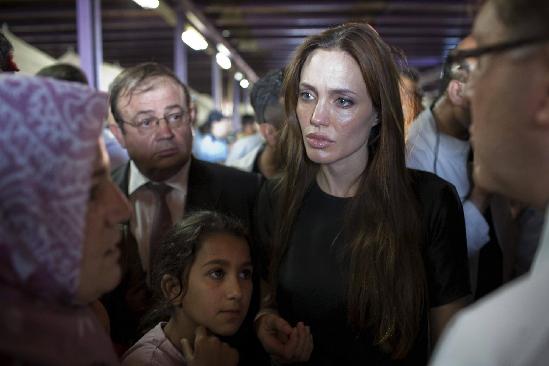Politics
Poor countries bear the brunt of refugee storm
Updated: 2011-06-20 15:31
(Agencies)
GENEVA - Four-fifths of the world's 15.4 million refugees are hosted in poor countries, where their prospects for citizenship are slim and economic opportunities are limited, according to a UN report released Monday.
More than a quarter are in just three nations: Pakistan, Iran and Syria.
Those figures don't include the latest wave of people displaced by this year's unrest in North Africa, most of whom have found refuge in neighboring countries as European nations try to stop them reaching their shores.
"Fears about supposed floods of refugees in industrialized countries are being vastly overblown or mistakenly conflated with issues of migration," UN High Commissioner for Refugees (UNHCR) Antonio Guterres said. "Meanwhile, it's poorer countries that are left having to pick up the burden."
Guterres visited the Italian island of Lampedusa on Sunday, where together with UNHCR goodwill ambassador Angelina Jolie, he met with migrants and refugees who have fled Tunisia and Libya in recent months.
|
|
|
||||
The Geneva-based agency said the situation had changed drastically from its foundation in 1950, when its focus was on the 2.1 million Europeans uprooted by World War II.
Aside from the 15.4 million refugees - a small increase of 153,000 since 2009 - UNHCR also counted 27.5 million internally displaced people and 850,000 asylum seekers last year. In total, there are 43.7 million forcibly displaced people worldwide, it said.
Palestinians make up one-third of the world's refugee population - a total of almost 5 million people - many of whom have lived in neighboring countries all their lives.
Afghans, meanwhile, constitute a fifth of the refugee total, having fled successive wars since the 1979 Soviet invasion. Many live in dire conditions in Pakistan and Iran.
Other major sources of refugees are Iraq, with almost 1.7 million, Somalia, with 770,000, and Congo, with 477,000.
UNHCR says many refugees risk lifelong hardship unless they are integrated by their host countries or offered resettlement elsewhere.
"It's quite often the case that neighboring countries don't want to grant citizenship for political reasons," UNHCR spokesman Adrian Edwards said.
The agency nevertheless stressed the generosity of host countries, many of which struggle to provide even for their own population.
Pakistan has 710 refugees for every dollar of its per capita gross domestic product. By contrast, Germany counts just 17 refugees for each dollar of per capita GDP, UNHCR said.
However, rich countries like Germany, which has the biggest refugee population in the industrialized world, are more likely to eventually grant them citizenship, offering newcomers and later generations the prospect of much-improved lives.
The US is by far the most generous country when it comes to outright resettlement, explaining its relatively low refugee figure of just 3,025. Last year alone, the US took in 71,362 refugees from elsewhere for resettlement. This was followed by Canada and Australia, with about 12,000 and 8,500 resettlements, respectively.
Japan became the first Asian country to offer resettlement last year. In September, the first of about 90 ethnic Karen from Myanmar arrived in Tokyo. Some had lived their entire lives in a Thai refugee camp before Japan agreed to take them in.
E-paper

Pret-a-design
China is taking bigger strides to become a force in fashion.
Lasting Spirit
Running with the Beijingers
A twist in the tale
Specials

My China story
Foreign readers are invited to share your China stories.

Mom’s the word
Italian expat struggles with learning English and experiences the joys of motherhood again.

Lenovo's challenge
Computer maker takes on iconic brand apple with range of stylish, popular products





